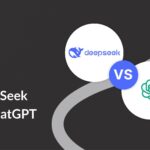AI cuts begin at the bottom: Entry-level jobs disappear in the age of automation
# The AI Revolution: Navigating a New Employment Landscape
Artificial Intelligence has long promised to revolutionize industries, enhance efficiencies, and drive innovation. However, the current wave of AI development is now reshaping the workforce in ways that are both rapid and profound. Companies like Duolingo, Shopify, and Salesforce are taking strides to incorporate AI, leading to a seismic shift in entry-level job availability. While some hail this as progress, recent data suggests a chilling counterpoint: the erosion of entry-level positions is real and accelerating.
## A New Era in Hiring Practices
In late April, Luis von Ahn, founder and CEO of Duolingo, delivered a sobering message to the company’s team. His email, which has been described as startling, outlined the elimination of certain contract positions—jobs that artificial intelligence can now perform. Duolingo’s stance as an “AI-first” company echoes a widespread trend. Companies are no longer just dabbling with AI; they’re actively transforming their operations and reducing their reliance on human labor for tasks AI can handle.
Duolingo isn’t an isolated case:
– **Shopify**: This company has instituted a policy where managers must prove a human hiring is essential, meaning AI cannot fulfill the role.
– **Salesforce**: The integration of AI led to a hiring slowdown and reassignment of roles, particularly in customer service.
– **Business Insider**: They laid off a fifth of their staff while encouraging widespread use of Enterprise ChatGPT.
The integration of AI has transformed these companies’ hiring practices, often leading to reductions in staff where AI can overtake human efficiency.
## The Growing Shadow on Entry-Level Jobs
Zanele Munyikwa, an economist at labor analytics firm Revelio Labs, underscores the growing shadow AI casts on the job market. Her research illustrates a 19% decline in job listings for positions that AI solutions can supplant. This marked decrease signifies a clear choice among companies to pivot towards AI capabilities instead of expanding their human workforce for such roles.
Roles highly exposed to AI influence—like those of database managers, IT specialists, and data engineers—are witnessing pronounced declines. Conversely, jobs with lower AI exposure, such as restaurant managers or construction foremen, remain in somewhat stable demand for the time being.
Yet, the broader implications of these findings are troubling. As the Federal Reserve Bank of New York points out, the unemployment rate for recent college graduates has surged to 5.8%. The picture is grim: the employment landscape for new graduates is deteriorating rapidly, driven primarily by shifts in tech industry hiring practices. Oxford Economics has observed early signs of AI’s replacement of entry-level roles, emphasizing the accelerating pace of these changes.
## The Double-Edged Sword of AI Integration
“We are witnessing the early stages of a profound transformation,” said an unnamed tech executive to The New York Times. This executive’s firm stopped hiring programmers with 3-7 years of experience, relying instead on AI tools for coding. Similarly, a data scientist at a startup now handles work that previously required 75 employees.
This scenario may sound dystopian, but not everyone believes it. “Most workers are unaware that this is going to happen,” said Anthropic CEO Dario Amodei. “It sounds crazy. People just don’t believe it.”
While these predictions are dramatic, they are not predetermined certainties. The technology is promising but not yet infallible. For example, Klarna’s decision to replace human customer service with AI chatbots led to complaints, prompting the fintech to reintegrate human employees to remedy the situation. This backtracking suggests companies may too quickly expect flawless AI performance.
Nonetheless, the rapid advancements in AI models from industry giants like OpenAI and Google, and even smaller innovative players like China’s DeepSeek, indicate that AI’s role in the workforce is only expanding.
## Learning from the AI Transition
What remains a compelling question is how industries will handle complex jobs that AI has not yet mastered. Today’s senior professionals cut their teeth on entry-level positions, learning through experience and mentorship. Without these foundational roles, a gap in future leadership and expertise could emerge.
Some companies might be gambling that by the time they face a deficit in skilled senior experts, AI will have evolved to fill that void. But this isn’t a guaranteed outcome. Maintaining a balance between AI capability and human expertise will be crucial as the world acclimates to an AI-centric workforce.
## Looking Forward: What Does the Future Hold?
The realities we face demand introspection and strategic foresight. How do we ensure that AI and human workers coexist symbiotically? Are we prepared to adapt our educational systems to prepare the next generation for a shifting job landscape? And perhaps most importantly, what roles do we envision for humans as AI continues to advance?
As we navigate these questions, it’s clear that the employment landscape is undergoing a transformation unprecedented in scope. It invites us all—business leaders, policymakers, and workers—to consider innovative ways to ensure this technological evolution benefits society as a whole. The dialogue around AI and employment is not just a discussion about technological efficiency, but a deeply human conversation about our future together.


